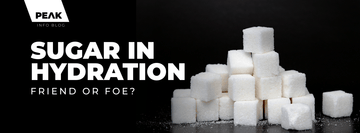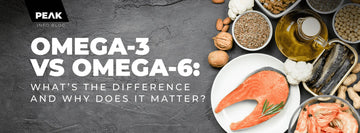Is sugar necessary in hydration solutions? The answer isn’t as simple as yes or no. Let’s unpack the science behind electrolyte absorption, glucose co-transport, and when sugar might support—or hinder—your hydration strategy.
What are electrolytes and why do they matter?
Electrolytes are minerals—like sodium, potassium, magnesium, calcium, chloride, and phosphorus—that carry an electrical charge and are vital for many bodily functions. They help:
- Maintain fluid balance
- Regulate blood pH levels
- Support nerve signaling
- Enable muscle contraction
When you sweat or lose fluids due to illness (such as vomiting or diarrhoea), you lose both water and electrolytes. Unlike plain water, electrolyte drinks are designed to replenish these essential minerals and restore balance.
Where does sugar fit in?
While glucose (a simple sugar) isn’t an electrolyte, it can play a supportive role in hydration. In the gut and kidneys, glucose helps transport sodium across cell membranes—a process called co-transport of sodium and glucose. As sodium is absorbed, water follows, enhancing rehydration.
This doesn’t mean sugar is always necessary for electrolyte absorption, but in certain contexts, it can be beneficial.
When is sugar helpful in hydration solutions?
Sugar-enhanced hydration solutions can be particularly useful in:
- Illness recovery: An oral rehydration solution (ORS)—made from sugar, salt, and water—is highly effective for treating dehydration caused by vomiting or diarrhoea. The sugar helps accelerate sodium and water absorption.
- Endurance hydration strategies: Athletes training or competing for extended periods may benefit from electrolyte drinks with sugar. These not only support hydration but also provide a quick energy source to replenish glycogen stores.
However, these solutions should complement—not replace—other fuelling strategies. Relying solely on sugary electrolyte drinks for energy during long workouts isn’t ideal.
Is sugar necessary for daily hydration?
For daily hydration and general recovery, sugar-free electrolyte drinks are often the better choice. Excess sugar intake is a common concern, and for individuals managing conditions like diabetes, added sugars can complicate blood glucose control.
Choosing a sugar-free hydration solution supports long-term health while still delivering the electrolytes your body needs.
Why choose PEAK Hydrate?
PEAK Hydrate is formulated to deliver effective hydration without added sugar. It contains a balanced blend of essential electrolytes and over 84 trace minerals, helping you replenish what’s lost—naturally and efficiently.
Whether you're recovering from a workout, illness, or simply staying hydrated throughout the day, PEAK Hydrate offers a clean, sugar-free electrolyte solution to support your wellness goals.
💡 Tip: Always consult your healthcare provider or dietitian before starting any electrolyte supplementation, especially if you have underlying health conditions.
References
- Wright, E.M. (2000). Coupling between Na⁺, sugar, and water transport across the intestine. Journal of Physiology, 542(Pt 1), pp.53–60. [PubMed]
- American Heart Association (2024). Electrolytes can give the body a charge but try not to overdo it. American Heart Association News, 19 June.












